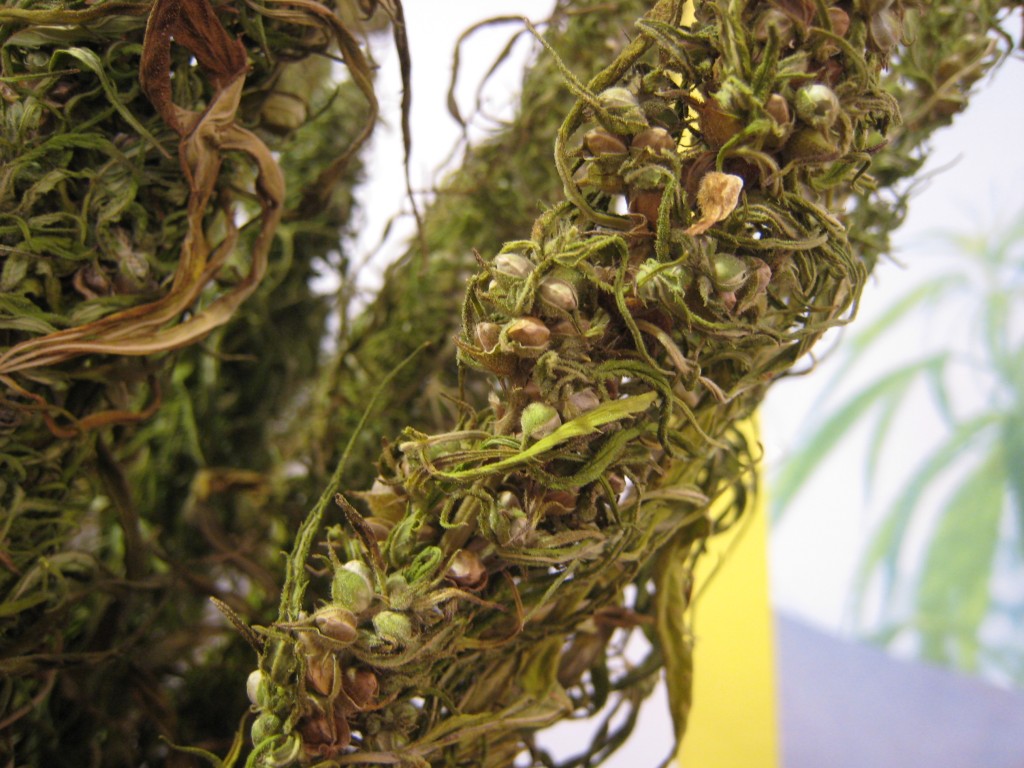Oregon Hemp: Onward!

The final week of the 2015 Oregon legislative session was kind of a blur. The House and Senate pushed through four marijuana bills in four days, including the big one, House Bill 3400. One thing nearly lost in this legislative crush was a bill that did not make it though, HB 2668. That bill sought to place a two-year moratorium on almost all hemp production in Oregon. It probably would have killed the tiny local industry.
HB 2668 cleared the House by a landslide vote of 53-6 after cross-pollination concerns were raised by marijuana growers adjacent to some of Oregon’s 13 licensed hemp grow sites. The bill looked primed to clear the Senate, but it surprisingly lost on a narrow 13-17 vote. Because marijuana advocates are nearly always pro-hemp, and vice versa, the HB 2668 debate was unusual in that it put these intra-genus camps at odds.
Even more interesting than the marijuana proponents’ opposition were legislators’ reasons for voting down the bill. Senator Rod Monroe (Portland) voted in favor of hemp specifically to harm marijuana. Mr. Monroe was quoted by the Oregonian as saying “I don’t think it would be a particularly bad thing if marijuana was weakened a bit.” He added, apparently seriously, that he thought his vote might save lives. Senator Lee Beyer (Springfield) had a more sensible rationale, arguing that the professionals at the Oregon Department of Agriculture (ODA), and not the legislature, should oversee hemp production.
It has been a slow road for hemp in Oregon. The legislature legalized growing hemp with SB 676 in 2009, but the state did not write rules until the federal government signaled in the 2014 Farm Bill that it would not crack down on well-regulated crops. The ODA finished writing its hemp rules in early 2015 (we wrote about it, here) and subsequently issued the 13 licenses, at $1,500 per. After the licenses were issued, licensees encountered some frustrating logistical issues, like actually acquiring seeds to grow the crop.
Historically, hemp was grown for rope, sails and paper products. It can also be used in many other applications. According to the New York Times this week, hemp-based building materials, including the incredibly strong and fireproof hempcrete, could usher in a new era of “green building”. Now that 19 other states have defined industrial hemp as distinct from marijuana and approved its production, it’s certainly possible.
With the defeat of HB 2668, it will be up to ODA to monitor the cross-pollination issues raised by Oregon marijuana growers and to ensure that the quality and intoxicating effects of nearby marijuana are not compromised. Given the recent debate, it seems likely that ODA will be extra-sensitive to this issue.
For anyone interested in getting into the Oregon hemp game, the ODA has a nice resource page, here.
– Vince Sliwoski, for the Canna Law Blog
Attorney with Harris Moure
